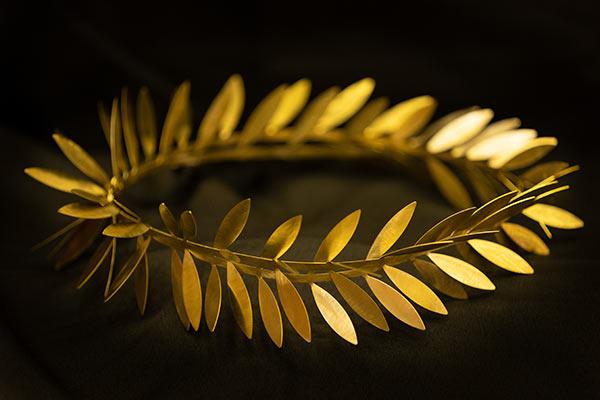After ten years of bloodshed, countless homes sacked and torched, and the death of the hero of the Trojan War, Agamemnon, Menelaus and Odysseus stand under a blood-red sun and lament the waste of Achilles’ life.
It’s a simple tale that we’ve heard before: Helen renounces Sparta and her husband Menelaus; Menelaus rallies Agamemnon and his other allies to sack Troy; they call in Achilles, the greatest warrior in the land; Achilles dies with an arrow in his heel, brought down by one blow. But that is not the story 'Holding Achilles' wants to tell. The red sun at the heart of this story is Patroclus, an oft-overlooked part of the tragedy and, in David Morton’s version, Achilles’ childhood friend and lover.
Patroclus is most known to us in the English speaking world as Achilles’ younger cousin in the David Benioff-written and Wolfgang Peterson-directed film 'Troy'. Historians know him from Greek myths and Homer’s 'The Iliad'. Lovers of queer literature know him from Madeline Miller’s 'The Song Of Achilles'. In some of these, he is written as Achilles’ cousin, some his older lover, some his younger friend. Never in any of these is he written without Achilles. But how would this story be written – indeed, how would Achilles’ legend be written – without Patroclus?
From Glass Half Full Productions, Dead Puppet Society and Legs On The Wall comes this epic of indefinable proportions, weaved with on-stage aerial acrobatics just as much as with words. 'Holding Achilles' is composed by Tony Buchen, Chris Bear and the inimitable Montaigne, whose voice echoes through the small theatre like a ghost. The haunting performances of the cast, including Karl Richmond as Patroclus, Stephen Madsen as Achilles, Ellen Bailey as Ajax and Hector, and Nic Prior as Chiron and Paris, bring a tale as old as Chronos back from the dead. Every sinew of this performance, from Chiron’s metal hooves to the gender-swapped roles to the green and gold of Achilles’s armour, is knitted together with adoration for boys who loved in life and died for legend. But it’s not just for them: this story is for every indefinable person and relationship that has been lost to time and buried by the carelessness, discrimination and homophobia of historians. In weaving their myth once again, Patroclus and Achilles refuse to be buried. Their love screams: we are here, we are queer, and we will haunt you.

This tale is three years in the making, converging stage fighting, live singing, puppetry and pole-dancing into a spectacular imagining of epic proportions. Between lockdowns, mandates and interstate travel, to finally have 'Holding Achilles' performed must seem like retirement in the haven of an olive grove at the end of a long war. In the writer and director’s note, Morton disparages the homages to brute force and the stories of “golden clad warriors engaged in brutal combat”. What this director wants to focus on is redemption: how could Achilles possibly be redeemed when viewed as a barbarous perpetrator of violence? The answer is, of course, by his heart.
Through acts of myth-weaving and delving into the psyche of a traumatised young man, we are able to see Morton’s vision come to light. Instead of a brutish fiend, Achilles is shown to be kind in his treatment of the slave girl Briseis. Instead of an arrogant fighter, Achilles proves to be a faithful teacher of combat. Instead of a merciless killer, Achilles fosters a bear cub with Patroclus who grows even bigger than its mother. In loving, Achilles is shown to us as worthy of being loved.
By placing a queer love story at the forefront of this play, by genderswapping King Agamemnon, Hector of Troy and Hector’s mother Priam, and by portraying Chiron as a creature who transes both gender and species, this transcendent story elevates itself from the canon of moth-eaten epics to a new realm of literature, performance and art. Where once the love story between Patroclus and Achilles was burned like an enemy, 'Holding Achilles' embraces them with warmth and love. The blood-red sun sets each day on the tarnished sands of Troy, but Achilles’ blood-red heart beats as long as his and Patroclus’ story continues to be told.







